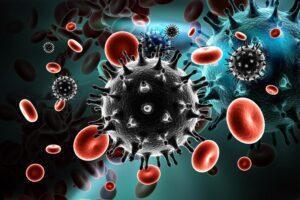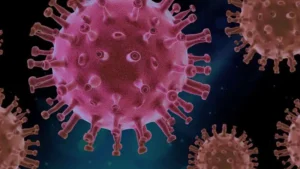Toxic Masculinity vs. Healthy Masculinity: What’s The Difference?

Toxic masculinity – it’s a phrase we hear almost daily in today’s society. But what is it exactly? According to Verywellmind, toxic masculinity can be defined as a series of cultural pressures for men to behave in a certain fashion. Simply put, it refers to the notion that some people’s idea of what a man is includes things like domination, homophobia, and aggressive behavior. Did you know, however, that there is also such a thing as healthy masculinity? In this blog, we’ll discuss toxic vs healthy masculinity in detail. Read on to learn more.
Exploring Toxic Masculinity
Toxic masculinity presents itself in an array of manners. Unfortunately, the idea that men must act tough and avoid expressing emotions is harmful, not only to the individual but to those around them. This is where the term “toxic” masculinity enters the picture. In all, researchers agree that toxic masculinity is composed of three major components. These include:
Toughness
Toughness is the notion that men must be emotionally callous, physically strong, and behaviorally aggressive.
Antifeminity
Antifeminity describes the idea that men must reject anything that could be considered feminine. This includes things like showing emotion or agreeing to accept help even if it’s needed.
Power
Power implies the assumption that men need to work toward achieving a position of power and status, either social or financial, to garner the respect of those around them.
Apart from these core components, men who fall victim to toxic masculinity often possess several common traits. Green Hill Recovery explains that these traits include but are not limited to:
- Unconditional physical toughness
- Fear of emotion
- Physical aggression
- Homophobia and discrimination
- Hyper independence
- Anti-feminist behavior
- Violence
- Sexual aggression
What Are The Impacts of Toxic Masculinity?

As we mentioned previously, toxic masculinity can be detrimental both to the man and those around them. In turn, its impacts are far-reaching and should not be underestimated. Research has shown that men that display toxic masculinity are more prone to poor health, isolation, and discontent. Below are some of the more common impacts of toxic masculinity.
Aggression
It’s not uncommon for youths to exercise violent and aggressive behaviors when expressing emotional distress. As males get older, there is potential for this aggression to escalate to unhealthy levels. Adolescent males who are unable to express their emotions healthily are likely to participate in physical assault, bullying, and verbally aggressive behavior.
Sexism
Toxic masculinity breeds discrimination against those the man views as lesser than them. This could include women and anyone perceived as existing outside the realm of heterosexuality. On the other hand, healthy masculinity is not sexist nor does it have any aversion to acknowledging emotions or vulnerability.
Trauma
Several childhood factors can increase an individual’s chances of displaying unhealthy masculine traits, including:
- Trauma or violence in the home
- Social rejection
- Learned behaviors of male dominance and violence
- Lack of mental health care
- Dysfunction in the family dynamics
Chauvinism
Derived from French soldier Nicolas Chauvin, the word chauvinism originally describe an excessive and unreasonable degree of patriotism. Today, the term is used to describe attitudes of superiority, especially concerning women.
Academic Challenges
Characteristics of those with unhealthy masculine traits can ultimately lead to academic challenges. When male students are unable to express emotion, it is often difficult for them to communicate with their peers without feeling judged.
What is Healthy Masculinity?

According to the Institute for Family Studies, healthy masculinity can be defined as a man flourishing first for himself, then for his family, posterity, and finally, his community. A man successfully embodying healthy masculinity is sure of who he is, is physically strong and healthy, and is motivated and driven to develop his skills and capabilities. In the end, this person exists in a world where it’s possible to develop his potential, fulfill his ambitions, and leave a lasting legacy.
Why Does Healthy Masculinity Matter?
In our society, men fulfill many roles and archetypes. That’s why our society needs to reject toxic masculinity and adopt healthy masculine traits. It is important to the individual as well as practicing healthy or positive masculinity means the man can be emotionally expressive and have female friends and mentors without feeling as though they’re emasculated. If you or someone you know could use some help removing stereotypes and becoming their authentic selves, the following are some helpful tips.
- Encourage men to freely express emotion
- Address disrespect
- Listen and validate feelings
- Encourage compassion and kindness
- Check-in with loved ones
What Are The Traits of Healthy Masculinity?
Much like there are noticeable traits of toxic masculinity there are also traits of healthy masculinity.
- Vulnerability
- A willingness to ask for help
- Freedom of expression
- Healthy relationship skills
- Holding men accountable when they’re disrespectful or aggressive
- Caring for oneself and others
Unlearning Toxic Masculinity

Afropunk explains it is entirely possible to unlearn toxic masculinity and begin practicing healthy masculinity. Whether you seek a therapist or begin working on these behaviors individually, it’s never too late to start doing better. If you’re interested in making a change and practicing healthy masculinity, we recommend the following tips.
- Talk about your emotions
- Beware of your own biases
- Educate yourself
- Promote healthy masculine behaviors
- Seek help
With this guide, we hope that you can become the best possible version of yourself. All it takes is a little respect, introspection, and commitment.



